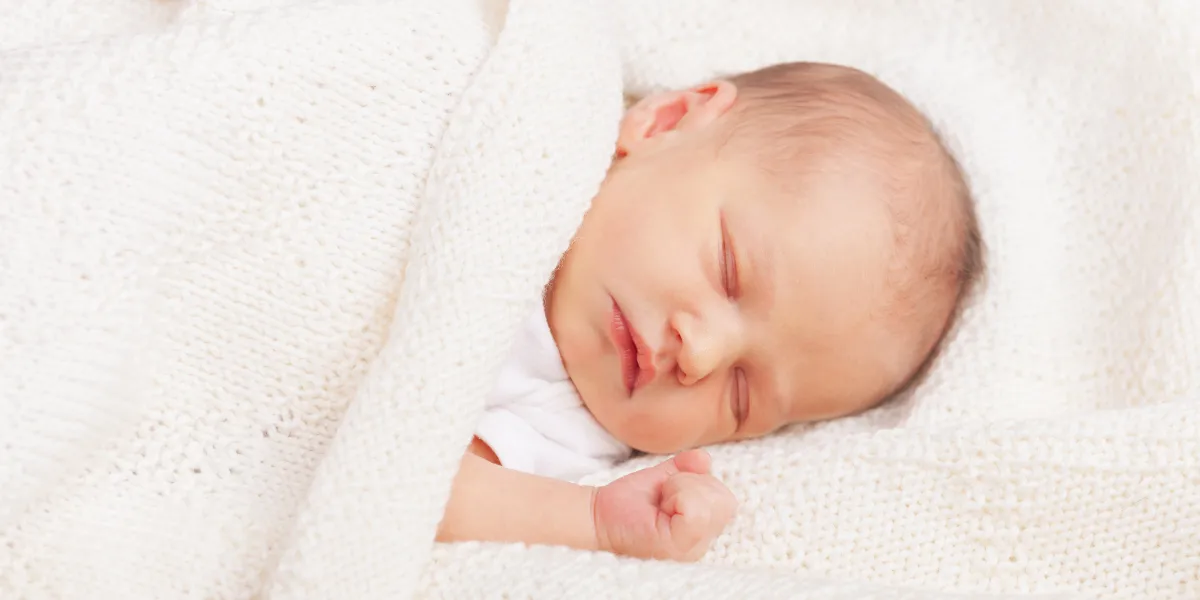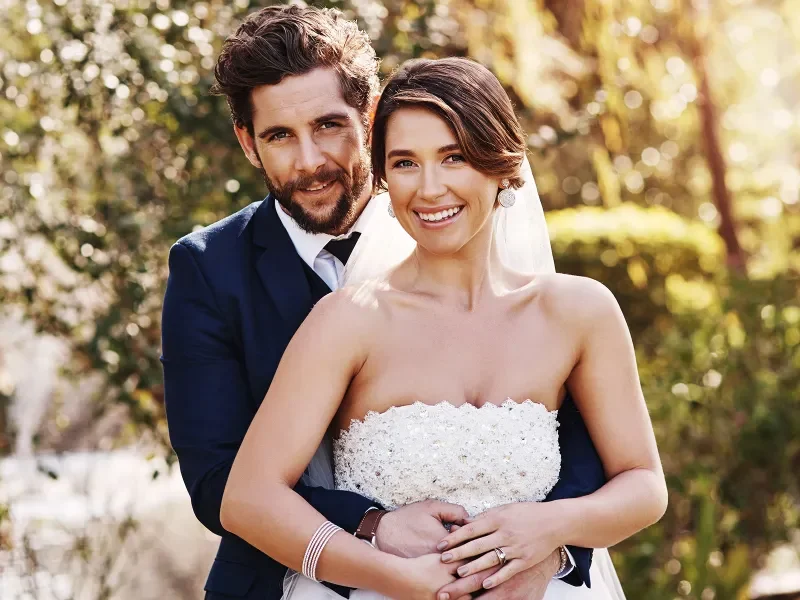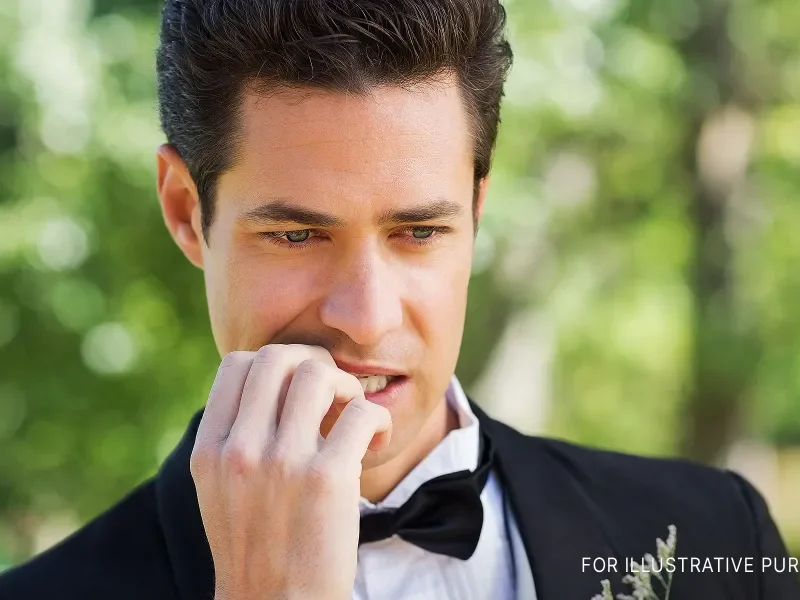I carried my sister’s baby for nine months, believing I was giving her the greatest gift. Six days after birth, I found the infant abandoned on my porch with a note that broke my heart into a million pieces.
I always thought my sister and I would grow old together, sharing everything. Laughter, secrets, and maybe even our kids growing up as best friends. That’s what sisters do, right?
Claire was the oldest at 38. She was graceful, composed, and always put together. She was the one everyone admired at family gatherings.
I was 34, the messy one, and always running five minutes late with my hair barely brushed but my heart wide open.
By the time she asked me the biggest favor of my life, I already had two children. A seven-year-old boy named Liam, who asked a million questions every day, and a four-year-old girl named Sophie, who believed she could talk to butterflies.
My life was far from glamorous or Instagram-worthy, but it was full of love, noise, and little sticky fingerprints on every single wall.
When Claire married Ethan, who was 40 and worked in finance, I was genuinely happy for her. They had everything I’d been told mattered in life. A beautiful home in the suburbs with a perfectly landscaped yard, good jobs with benefits, and the picture-perfect life you see in magazine spreads.
The only thing missing was a child.
They tried for years to have one. IVF after IVF, hormone shots that left her bruised and emotional, and miscarriages that broke her a little more each time. I saw what it did to her, how each loss dimmed the light in her eyes just a bit more until she barely seemed like my sister anymore.
So, when she asked me to be their surrogate, I didn’t even hesitate for a second.
“If I can carry a baby for you, then that’s what I’ll do,” I told her, reaching across the kitchen table to squeeze her hand.
She cried right there, tears streaming down her face as she grabbed both my hands. She hugged me so tight I could barely breathe.
“You’re saving us,” she whispered into my shoulder. “You’re literally saving our lives.”
We didn’t rush into it, though.
We talked for weeks with doctors who explained every risk and possibility, with lawyers who drew up contracts, and with our parents who had concerns and questions. Every conversation ended the same way, with Claire’s eyes filled with hope and mine with tears of empathy.
We knew it wouldn’t be easy. We knew there would be challenges and uncomfortable moments and things we couldn’t predict.
But it felt right in a way I can’t fully explain.
I had already experienced the pure chaos and joy of motherhood firsthand. The sleepless nights when you’re so tired you forget your own name, the sticky kisses that leave jam on your cheek, and those tiny arms wrapping around your neck when they need comfort.
I knew what that love felt like, how it rewired your soul forever and changed everything about who you are.
And Claire, my big sister who had always protected me growing up, deserved to know that feeling too.
I wanted her to hear a little voice call her Mommy. I wanted her to have the messy mornings where you can’t find matching shoes, the giggles that make your heart explode, and the bedtime stories that end in tiny snores.
“This will change your life,” I told her one night, placing her hand on my belly after we’d started the treatments. “It’s the best kind of exhausting you’ll ever know. The kind that makes everything else worth it.”
She squeezed my fingers tight, her eyes searching mine.
“I just hope I don’t mess it up,” she said softly. “I’ve never done this before.”
“You won’t,” I smiled, trying to reassure her. “You’ve waited too long for this. You’re going to be amazing.”
When the doctors confirmed that the embryo had successfully implanted and the pregnancy was viable, we both cried in that sterile office. Not just because of science and modern medicine, but because of faith. Faith that this time, after all the heartbreak, love would finally win.
From that moment on, it wasn’t just her dream anymore. It became mine too.
The pregnancy went better than anyone expected, honestly. I was lucky compared to some of the horror stories I’d heard. There were no major complications or scary mornings in the emergency room.
I just had the usual nausea that hit around week six, cravings for pickles and ice cream at midnight, and swollen feet that made my shoes feel like torture devices.
Every flutter and every tiny kick felt like a promise being kept. Claire came to every single appointment, holding my hand as if she could somehow feel the heartbeat through my skin too.
She brought me fruit smoothies in the mornings, prenatal vitamins she’d researched for hours, and endless baby name lists written in her perfect handwriting.
She had a Pinterest board that must have had five hundred pins, all full of nursery ideas. Soft yellows, hand-painted clouds on the ceiling, and little wooden animals lined up on floating shelves.
Ethan painted the nursery himself one weekend, refusing to hire anyone.
“Our baby deserves perfection,” he’d said proudly over dinner one night, showing us pictures on his phone. “Everything has to be just right.”
Their excitement made me genuinely happy. It felt contagious, like their joy was spilling over into my own life. Every ultrasound photo went straight onto their fridge with little magnets.
Claire would text me pictures of the baby clothes she bought almost daily. She was glowing again, and I hadn’t seen her that alive in years.
As my due date approached, Claire became more nervous but in the best way possible.
“The crib is ready,” she’d tell me during our weekly coffee dates. “The car seat is installed. The diaper station is set up. Everything’s waiting. I just need her in my arms now.”
I’d smile and rest my hand on my stomach, feeling another kick. “She’ll be there soon. Just a few more weeks.”
None of us could have known how quickly joy can turn into absolute heartbreak.
The day Nora was born felt like the world finally exhaled after holding its breath.
Claire and Ethan were both there in the delivery room, standing on either side of me and holding my hands as I pushed through the pain. When that tiny cry finally filled the air, cutting through all the beeping machines and urgent voices, we all burst into tears at once. It was the purest, most beautiful sound I’d ever heard in my entire life.
“She’s perfect,” Claire whispered, her voice trembling as the nurse placed the baby on her chest for the first time. “She’s absolutely perfect.”
Ethan’s eyes shone with unshed tears as he reached out and touched the baby’s tiny cheek with one finger.
“You did it,” he said, looking at me. “You gave us everything we ever wanted.”
“No,” I said softly, watching them cradle their daughter. “She gave you everything.”
Before they left the hospital the next day, Claire hugged me so tightly I could feel her heart racing against mine. “You’ll come visit soon,” she said, her eyes still red from happy crying. “Nora needs to know her amazing aunt who gave her life.”
I laughed. “You won’t get rid of me that easily. I’ll probably be knocking on your door every other day.”
When they drove away in their SUV, the car seat buckled carefully in the back and Claire waving from the passenger seat with the biggest smile on her face, I felt an ache in my chest. The bittersweet kind that comes from letting go of something you love, even when you know it’s going to the right place.
The next morning, still recovering at home, Claire sent me a picture of Nora asleep in her crib with a tiny pink bow on her head.
“Home,” the caption read, followed by a little pink heart emoji.
The following day, another photo came through where Ethan was holding the baby and Claire was standing right next to him. They were smiling at the camera.
I texted back immediately, “She’s perfect. You both look so happy.”
But after that, something changed. The messages and photos stopped. There were no calls either. Just complete silence.
At first, I didn’t let myself worry too much. They were brand new parents, after all. Sleep-deprived, overwhelmed, and learning how to function on two hours of sleep. I remembered those early days myself, when even brushing your hair felt like the biggest achievement.
Still, by the third day, I started to feel uneasy. Something in my gut whispered that this wasn’t right.
I’d texted Claire twice, but there was no reply.
By the fifth day, I was calling morning and night, each time going straight to voicemail.
I told myself they were fine. Maybe they’d just turned off their phones to rest or have a quiet weekend bonding as a new family without distractions.
But deep down, something in my gut wouldn’t settle.
On the sixth morning, I was in the kitchen making breakfast for Liam and Sophie when I heard a faint knock on the front door.
At first, I thought it was just the mailman dropping off a package. But when I opened the door, wiping my hands on my jeans, my heart skipped a beat.
There, on my porch in the early morning light, was a wicker basket.
Inside, wrapped in the same pink blanket I’d seen at the hospital, was Nora. Her tiny hands were clenched into little fists, her face pale but peaceful as she slept. And pinned to the blanket with a safety pin was a note, written in my sister’s unmistakable handwriting.
“We didn’t want a baby like this. She’s your problem now.”
For a second, I couldn’t even move. My knees gave out, and I sank to the cold concrete, pulling the basket closer to my chest.
“Claire?!” I shouted into the empty street, but there was no one there.
I grabbed my phone with shaking hands and called her, my fingers fumbling over the screen. It rang once, then twice, before she actually picked up.
“Claire, what is this?!” I cried. “What are you doing? Why is Nora on my porch like she’s a package you’re returning?”
“Why are you calling?!” she snapped. “You knew about Nora, and you didn’t tell us! Now she’s your problem!”
“What?” I asked. “What are you talking about?”
“She’s not what we expected,” she said coldly, and I could hear Ethan’s voice murmuring something in the background. “There’s something wrong with her heart. The doctors told us yesterday. Ethan and I talked about it all night. We can’t handle that kind of responsibility.”
My mind went blank with shock. “What are you saying? She’s your daughter! You carried her in your heart for years!”
There was a pause, a heavy and awful silence that seemed to stretch forever. Then she said flatly, “No. She’s your problem now. We never signed up for damaged goods.”
And the line went dead.
I stood there on the porch, shaking, the phone still pressed to my ear long after the call ended. My whole body felt numb, like I’d been plunged into ice water.
Damaged goods, I thought. That’s what she called Nora.
Nora whimpered softly, and that tiny sound snapped me back to reality. I lifted her into my arms carefully.
My tears soaked into her tiny knit hat as I whispered, “It’s okay, baby. You’re safe now. I’ve got you.”
I brought her inside quickly, wrapped her in a warm blanket from the couch, and called my mom with trembling fingers.
The moment she arrived 20 minutes later and saw the basket still sitting by the door, she covered her mouth with both hands, whispering, “Dear God, what has she done?”
We took Nora to the hospital right away, not wasting another minute. Hospital social workers notified CPS and the police; I gave them the note and timeline.
Then, the doctors confirmed what Claire had coldly mentioned on the phone: a heart defect that would need surgery within the next few months, but nothing that was immediately life-threatening.
But they were optimistic, which gave me something to hold onto.
“She’s strong,” one doctor said, looking at me with kind eyes. “She just needs someone who won’t give up on her.”
I smiled through my tears, holding Nora closer. “She has me. She’ll always have me.”
The weeks that followed were some of the hardest of my life. Sleepless nights listening to her breathe and hospital visits that felt endless.
I held her every single time she cried and told her that I’d always be there for her.
Figuring out the adoption process was also quite challenging, but I did whatever I could. Soon, Child Services opened a case. A judge granted me emergency custody while the court moved to terminate Claire and Ethan’s parental rights. Months later, I finalized Nora’s adoption.
Then came the day of the surgery. I sat outside the operating room clutching her tiny blanket, praying harder than I ever had in my entire life.
Hours crawled by like years.
Then the surgeon came out, pulling down his mask and smiling. “She did beautifully. Her heart’s beating strong now.”
I broke down crying right there in the hallway. Those were tears of relief and love.
Now, five years later, she’s a happy, wild, and completely unstoppable little girl. She dances in the living room to songs she makes up, paints butterflies on the walls when I’m not looking, and tells everyone at her kindergarten that her heart “got fixed by magic and love.”
Every night before bed, she presses my hand to her chest and says, “Can you hear it, Mommy? My strong heart?”
“Yes, baby,” I whisper every single time. “The strongest one I’ve ever heard.”
As for Claire and Ethan, life had a strange way of finding balance. A year after they abandoned Nora, Ethan’s business went bankrupt after some bad investments. They lost their perfect house with the painted nursery. Meanwhile, Claire’s health declined. It wasn’t something life-threatening, but enough to slow her down and keep her isolated from the social circles she’d loved.
Mom told me Claire had reached out once, trying to apologize through a long email. But I couldn’t bring myself to read it or call back.
I didn’t need revenge or closure, because I already had everything she’d thrown away like it was worthless.
Nora calls me Mom now. And every time she laughs, throwing her head back with pure joy, it feels like the universe reminding me that love isn’t something you choose based on conditions.
It’s something you prove every single day.
I gave her life. She gave mine meaning.
And that, I think, is the most beautiful kind of justice there is.


